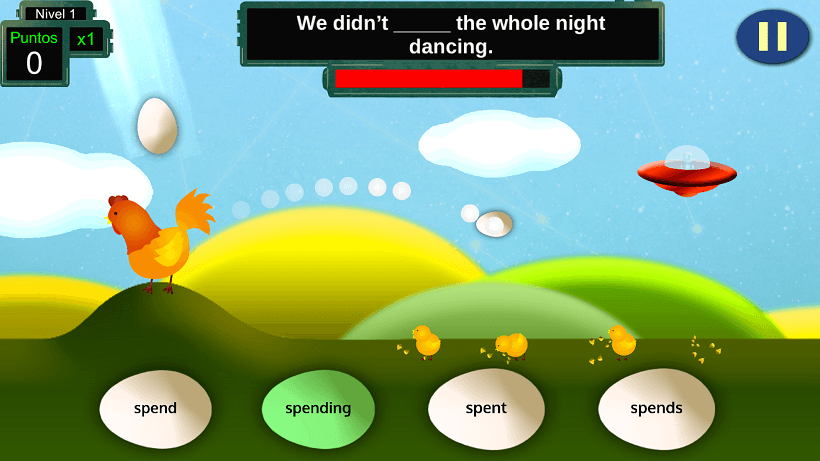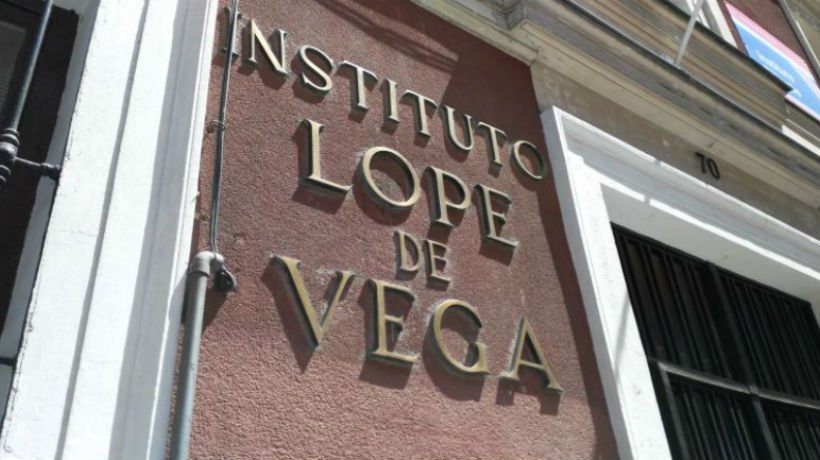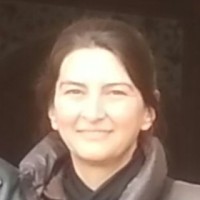How Little Smart Planet Is Gamifying Different Subjects At The Spanish Public And Private Schools
Juan Baixeras firmly believes that learning does not have to be boring. Through the Little Smart Planet company he spends most of his professional career to introduce educational games based on the official curriculum in classrooms. "There should always be a fun space or a gamified space in learning to complement the practical aspect and the rote aspect," Juan says. "It's a complementary way to learn compared to traditional ways. I do not think the game will serve to learn when you are outside the classroom, I think it has to be induced by the community of teachers to be experienced in the classroom, and to be used every week to learn through play and to progress and strengthen traditional content that the student is studying, but through play. It is a mechanism that would help improve the results".
What Does Juan Baixeras Think On Gamification In Education In Spain Compared To Other Countries?
"Overall", he says, "it is happening something very similar to what happens with the traditional education system. In Spain, I think we are behind the social reality of what this country is, because we have a very parceled out, compartmentalized, with 17 different educational realities, complex educational system, and not having a uniqueness in the educational aspect causes that each part does what they think they have to do. There are public schools in different regions that are great, and there are public schools in other regions that are not so great. There are private schools in which the same happens and there are also private schools in the same case. We have a dispersed and inefficient educational system, because different governments coming change the education law, but they are not dedicated to increasing quality".
"Gamification in England is much more established; in Scandinavia is much more established, but there are countries that are not as developed as it can be Lithuania, for example, where they have opted for digital education and gamification in education and they have had surprisingly good results. It is a matter of will, of wanting to do well. If you do not encourage it and you do not finance it, you will hardly have an educational system aligned with the current technological reality, and it's a shame, because today gamification works wonders".
"If you get out from Europe and then go to Latin America (...), you're going to find very similar standards to the Spanish one. If you leave Europe and you go you to the US, the gamification is a true reality and it works like a shot, it is a wonder, and in public schools. There are schools who work professionally with tablets with extraordinary results. It is also true that the Anglo-Saxon education has a component of pragmatism that is higher than the Spanish education".
"In Spain we are going through a worrying situation. There are many countries that are more advanced than us. An educational reform that would have to be very deep is needed, and within the world of gamification I believe that technology has arrived today to help students, guided by the teacher and the educator. The student will be delighted because technological advances are always fun for kids, but you have to know how to use them and what results they can give you".
"What I believe is that we should try to learn by playing, because I think the game is a mechanism for strengthening education. There should always be a fun space or a gamification space for learning to complement the practical aspect and the rote aspect. The game does not replace traditional training, but it complements it. Well created and well thought games will help the educational progress. Those are games designed for students to progress while having fun. It is a complementary way to learn compared to traditional ways. All what is needed is to be guided by teachers for students to try it in class".
"The experiences that are now through the game I think they are all positive. We have examples such as that of Smartick, which is a reality that has shown today that the students progress as they play. Those are mechanisms that are pedagogically tested. I would ask as a wish that teachers could lose their fear and that they could introduce games a little time every week to try and see how this works in relation to the progress of their students. If they see progress, then they could incorporate it; if they see no progress, then they can reject it or do not use it, but refusing it on principle and thinking that technology is a nuisance that is not within the curricula is a huge mistake. We especially have to induce the teachers to encourage their students to try any possible gamification tool in class".
What Does Little Smart Planet Gives To Gamification?
"From the point of view of the product, in Little Smart Planet we now have three tools in the world of gamification", John explains:
- "We have a product for Primary, which are games of Math, English Language and Grammar, from six to 11 years old. As in the world of gamification you can never stand still because your product gets old very quickly, we are working now on developing Science games directly in English Language, because it is a subject in the Community of Madrid and other parts of Spain directly taught in that language and that is part of the bilingual curriculum that schools are offering right now. We are developing 18 games for Primary, directly in English language, so we are complementing the 54 games we had to get to 72 with the subject of Science. Therefore, we cover Mathematics, Grammar, English language and Science in Primary, with an offer of 72 different games".
- "On the other hand, we have done a market survey powerful enough to see how we could help secondary students from the point of view of gamification. We have noticed that children aged 12 to 15 years are already in a different environment. Instead, if we focus on a tool that can help them to learn through play and to reinforce the contents of the exam of proximity that they will take, it really becomes a very useful game for them and for the teachers. This has resulted in the emergence of a new secondary product called Quest Hero. Those are trivial type games of questions and answers that accompany the student in Spain and other countries to export curriculum content they are watching in class of Mathematics, Physics and Chemistry, Biology, Geography, History, Grammar and Literature".
- "It's a game that resembles Preguntados, where the student has to answer some questions with three possible answers. Teachers now use the Quest Hero games by saying: 'Now, take the mobile phone; let's play a competition of Grammar and Literature, Spanish classical literature, which corresponds with the exam you are taking in two weeks'. We believe it helps a lot to students in order to really enhance knowledge of the different subjects through the game".
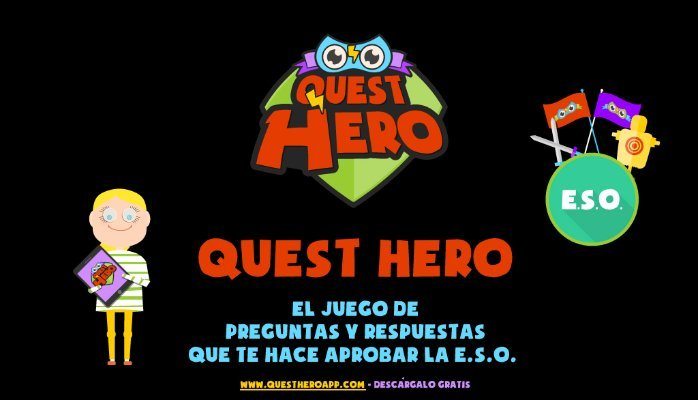
Gamifying Secondary class
- "The difference in this game compared to many others who are in the market is that it is following the curriculum and that it is divided into different subjects that the student has studied throughout the year in that subject. "For example, Juan explains, if you take an exam on Geography and History, you are not taking a comprehensive test, but on Feudalism, Islam or the Baroque. In that sense, we have the game parceled and divided into different parts that make up the subject as such, helping the student that has to take an exam on the Baroque, by playing on this, to see and review the contents which will then requested in the exam". "We want the students to have fun, Juan stands. "If the student is not having fun while doing it, we are failing in the value proposition. I think it's very important that students relate it to a game, not to doing homework. What we have done here is gamifying a bit more difficult content than the contents of primary, because we go to a more demanding public, who are teenagers. Within the development of the company, we have launched this game to accompany the gamification process that had begun with Little Smart Planet for Primary."
- "Finally, we have grown this year through a partnership with a company called Pixie, dedicated to programming and code games. Programming will be a compulsory subject in schools within a very short time; in France and in England it is already mandatory, and in Spain not yet, but it will be (in fact, in the Madrid Community, yes it is). This is a company with which we took a long time working, which has a tool that allows teachers to use Pixie games to teach their students how to program from 8 to 14 years. What we want is to complement the umbrella of gamification we have, also offering programming and development games in a subject that will become mandatory."
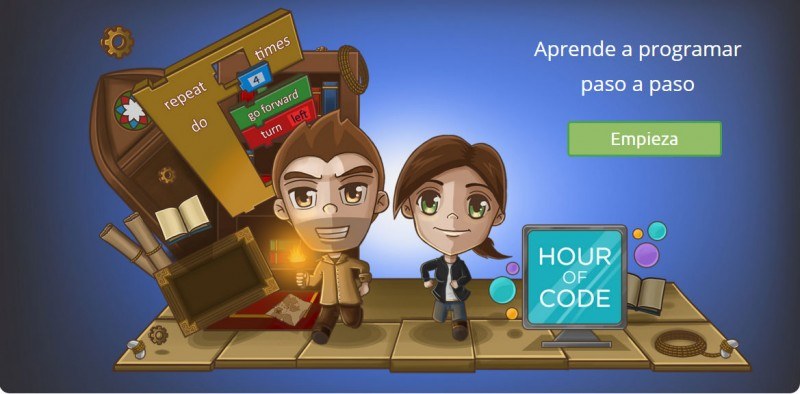
Gamifying programming
- "Right now we are a company that offers gamification resources for Primary to Secondary and in programming and development for both schools, and parents and students, who from their homes they find in Little Quest Hero and Pixie tools that help them to reinforce what they are studying in class. Our goal remains to create games and tools that help children reinforce what they are learning in school, because all our games are curriculum validated. It is the big difference from what Little Smart Planet offers as a company with other gaming companies. Our gamification is based on actual educational resources."
Gamifying The Classroom
"From the point of view of the market, -says Juan- we have developed in two different ways , the B2B and B2C":
- "The B2B is the world of schools. The world of schools is radically difficult, it is a very complex world, where penetration is very expensive, but it is a world in which we are gradually having an impact through our commercial effort. We are insisting on testing Little Smart Planet games for Primary with teachers and students in the classroom, so they can convey what their experience was, how games work when tested with students in class."
- "As technology is helping that more and more mobile devices get in classes, teachers are increasingly easy to test the games. Thus, we have already tested it in more than 45 schools in Spain, with very good results from the point of view of usability and opinion of the teachers and students, who say that these games are useful and effective in reinforcing what they are learning in class, and students are having a great time, that is, that when it comes the time when they are told 'and now let's play Little' , they think it's great because they remember it as something playful in the process of classroom learning."
- "We are also doing a test with more than 25 schools in the Madrid region through the own Ministry of Education, under the supervision of David Cervera, head of the General Department of innovation programs in the Community of Madrid; thanks to him we have reached more than 25 public schools in the community to test the games. The result today is that they have played more than 50,000 games and the opinion of teachers and students about this pilot is being very good."
- "On the other hand, we have gone to the other end of the spectrum, radically different, which are private schools, through the CICAE. We have signed an agreement with CICAE, an association of 35 private schools in Spain and the truth is that we are testing the games with them throughout this year, with equally good results."
- "In September 2015 we started a very potent activity as a company that led to the awarding of a prize as the best method of online learning in 2015 at the Education SIMO, prompting to go to different schools. Therefore, in schools, in both private and public spectrum, the various pilot tests are working very well and now we are doing the spectrum of charter schools. We are also working to go to them."
- "This school year we are engaged in pilot testing, because we have to show that the tool is useful in the classroom to gradually convince teachers. It's happening and we are making progress, although the pace is slow, because teachers have a teaching methodology of their own. Convincing them to use digital tools to teach their students is slower than we would like."
- "Regarding Quest Hero, which we just launched now, we have also reached an agreement with the Community of Madrid to test it the 415 public institutes in the Community, to which we invited through a call from the Ministry of Education itself. We have over 25 schools that have said they want to test the tool with their students; therefore now we have to test it and see the feedback we receive from that side."
- "We use all feedback received to optimize our resources. Our games have a number of solutions that come embedded within each. Schools requested us that these solutions could be used as digital resources in the classrooms for whiteboards, for example, and we have done that. We have also been requested to parcel out the games, from the point of view of the evolution of each student. There are students who are faster when acquiring knowledge, and there are some that are slower. You cannot ask all students the same level of development in games, but you have to calibrate it depending on how each of the students evolves and this is something we are already doing. We have been requested for teachers to index their own questions. Besides the curriculum, there are teachers who develop the subjects in a different way. So we are requested to let them enter their own questions and answers in the platform, and then to decide if they want to share it with the school. All testing that we are doing are aimed to improve our products."
- "Concerning special education, we are beginning to apply it, because obviously we think it has a special relevance, because our games, as they can be modulated depending on their difficulty, children with certain handicaps or difficulties are being helped. There is an institute in Almeria with these characteristics that is testing it and it is going particularly well. Teachers find a tool that is fantastic just for this."
- "From the point of view of B2C, ie, with operators, Little Smart Planet is working very well: With Movistar we have over 5,000 active clients today; Orange is working with less results because it promotes itless and with Vodafone we just launched it and it looks great. In Latin America we have launched it with both Claro and Movistar Latam in different countries; we are offering our tool in B2C, ie on operators, as a subscription platform. Then, on the other hand, we are beginning to test how our tool works on both iOS and Google Play; we are beginning to invest in digital marketing to see what does it offers us back. The results we are starting to see are encouraging."
Partners
"From the business point of view there are several new features that were closed in December 2015":
On the one hand, an entity called Buongiorno has entered the company, buying an important part of it. It is a company of Italian origin who is primarily engaged in the marketing of games and mobile solutions and that has the large operators in the world as large customers. It is a company of NTT Docomo, which is a Japanese company. NTT Docomo bought Buongiorno in 2012 and Boungiorno has bought a significant part of Little Smart Planet because they want to complement their children's play offer, called Kidzinmind, from zero to six years, with an offer of curricular games for Primary and Secondary.
"We have closed a circle with them that is very important to us, because Buongiorno gives us the experience of working with many operators as a value added service in many parts of the world and they are experts in digital marketing. It is a great help. What we have found is an industrial partner who knows our product and that can help us to develop it in a really important way, so I'm delighted."
"Buongiorno 's CEO, Fernando González Mesones, is overturned in helping us from the point of view of mentoring. It is people who have a huge market experience and that helps us by saving a lot of steps to us."
"We have also signed an agreement with a company called Grammata Education that works great and that has large institutional arrangements in Latin America. We will also close a deal with them to enter Peru and Ecuador during the first quarter of 2016 at an institutional level and we will bring everything that is the value of gamification."
"On the other hand, we have the agreement to access schools with Samsung School. Sell technology to schools is very complicated. Samsung provides a technological solution through its tablets. It can offer agreements to sell tablets at very good prices and with great financing, and we will work in this direction. They have realized that they need agreements with certified dealers where what it is offered to schools is a complete solution. It includes connectivity, technology, content... It includes the full circle, so that from the school, the principal or responsible for ICT does a single negotiation that involves a bit of everything. Right now we are negotiating with each new Samsung distributors to enter schools also helped in this way".
"I am also trying to work with the big publishers as distributors, either SM, whether Anaya, Santillana... who are living their own battle, which today is the digitization of content: How to bring that content to the world of ipads and tablets. What we need to assume is that this has come to stay. Tools used are already digital tools and gamification comes to complement it."
"On the other hand, we would have to reach an agreement with a company that is dedicated to teacher training in a more comprehensive way. Ideally we would have to reach an agreement with someone like SM, and that SM with its vendors were able to go to the schools to visit the teachers and go training them in the use of the tool. It is true that all the tests we are doing in schools are derived from a demonstration and prior training, because we have visited schools to teach them how the tool is used and what are the advantages, but we should be doing so in a stronger way, because the teachers when you give these trainings, are enchanted and they begin to use it in a much more organized way that without such training".
Growth Strategy
"We are now in a growth strategy in two ways", says Juan:
- "We are working in Spain and Latin America at the same rate, we have launched our games in English and therefore they can be downloaded in English in any of the digital platforms. Moreover, we launched the product in Brazil, because we have a Brazilian partner; we have adapted all our games to the Brazilian curricular reality and we have launched in March."
- "At an European level, we are working right now with a program of the European Union called Horizonte2020, which allows us to qualify for a major grant to bring our games to an environment of Europeanization; that is, we want to take our games to two countries, England and Germany, because we think those are the two countries that have, from the point of view of the digital environment, the greatest chance of success. We are finishing right now, we are in phase two of Horizonte2020; phase one was won. We are implementing the feasibility study, and once we have it, we will go on to develop games in German language."
Results
"I am optimistic, cautiously optimistic with schools, but in a reasonably long term; ie here the next two years is when we will begin to see some results, but it is a very difficult, complicated, slow, very protected market, where defenders of what should be the introduction of technology and aid coming through technology in schools, which are teachers, are very comfortable with the paper book, in the territories that they already dominate and control. They have trouble getting out of those territories."
"What's going on? We are realizing that different mechanisms of gamification are gradually entering in schools that are doing this work. There are teachers who are younger, who have more momentum, more willing to try new things, because they see that when they try these new things, the results are very positive. We are in a time of experimentation and meanwhile of growth."
